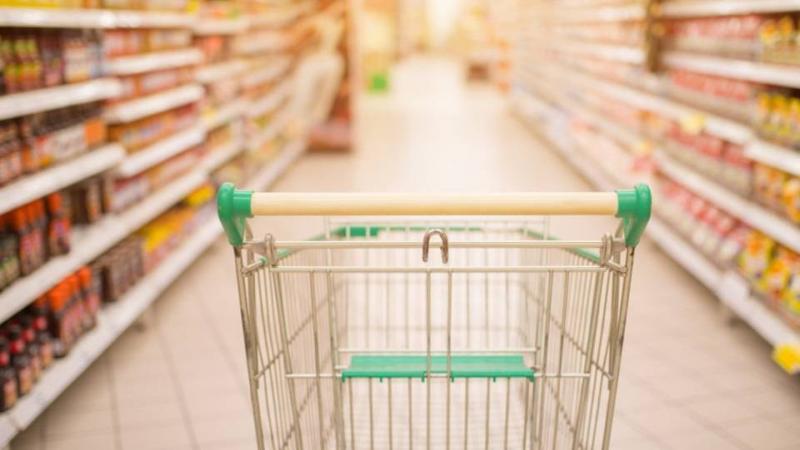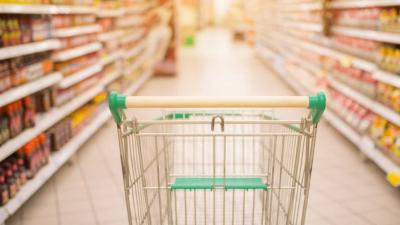"The exchange rate of the dollar has decreased, but the prices of basic consumer goods have not dropped." This is a phrase we have become accustomed to hearing since the start of the crisis in Lebanon until today. Each time the dollar’s price rises, traders hasten to increase their prices. However, when it declines, prices remain unchanged, with the same excuse: the cost of fuel and purchasing it at elevated prices. Amidst the madness of the dollar, the greed of traders, and the absence of the state, the Lebanese citizen struggles to secure their daily sustenance. So, who is responsible? Who protects the citizen in this country?
While the prices of consumer goods remain high, there are expectations that agricultural product prices will decrease due to the inability to export them abroad. Ibrahim Al-Tarshishi, head of the Farmers and Agricultural Workers Union, announced that farmers will escalate their actions starting next week. He stated in a statement: "Thousands of tons of Lebanese fruits and vegetables are banned from export, preventing foreign currency from entering the country, due to a strike by employees. While we support their demands, we urge them to facilitate agricultural exports, and we should not be held responsible for this economic collapse." He noted that "what we are experiencing today is catastrophic; we are surrounded by an export ban and also suffer from the decisions of the Ministries of Economy and Agriculture regarding wheat cultivation. Farmers are marginalized, and no one wants to buy their products, while exports are prohibited. At the same time, we announce to both ministries that farmers are ready to sell their products to the Lebanese state at a price less than 100 dollars below the global price."
Al-Tarshishi concluded: "The absence of a ministerial presence characterizes our reality on the brink of the agricultural harvest seasons, and it is unacceptable to turn seasons of goodness into deadly seasons for farmers. The concerned parties must solve the issue of the employees' strike and the purchase of the wheat season."
So, can the agricultural sector witness a decrease in prices? Will agricultural product prices decline? Member of the Economic and Social Council, Imran Fakhry, responds to this question, saying: "The 'shelf life' of agricultural products once they hit the market is 'short'; we cannot store them like other food items and sell them later for profit or to maintain a certain profit margin. It has also become difficult to store some varieties that used to last for a month or two in refrigerators due to high storage costs. Therefore, if supply exceeds demand in agricultural markets, agricultural product prices will drop, sometimes selling for less than their cost, because any product that cannot find its way for export and is about to ripen in its country of origin will either spoil or decrease in price."
Dr. Zuheir Barro, head of the Consumer Association, believes that "the chaos in supermarkets and small shops is well-known, and what matters today is addressing the problems that led to this situation, not just shedding light on them. The key question to ask today is: What measures should be taken to get out of this crisis? To this day, the same authority continues to control the dollar based on its needs and interests, which is the same authority that has brought the game of bankruptcy and collapse to the table. The absurd prices are symptoms of the Lebanese cancer caused by the nature of the sectarian mafia system and the collusion of the legislative, executive, and judicial authorities with banks and large traders, who dominate power and the economy and, consequently, the Lebanese people. Today, it has become essential to understand the economic system in Lebanon and how it was built; therefore, we should not treat the symptoms but start addressing the causes."
And if we want to talk about solutions today, they certainly do not lie solely in regulating and monitoring prices; they are futile in the face of the ongoing collapse and chaos, says Barro. "The proposed solutions are merely alternatives to the issues stemming from the actions of the Governor of the Central Bank, Riad Salameh, and the backing of the traders and banks that are daily draining what remains of depositors' funds. This can be achieved by adopting a recovery plan, immediately stopping the outflow of foreign currency, approving a competition law, scheduling the weekly payment of dollar deposits, and halting the monopoly of the political traders and their families who control the markets." He urges "the remaining economic forces in the country to head towards the main entrance to exiting all crises and to apply the constitution literally by stripping it of sectarianism, thereby eliminating the sectarian system as it is the root of all the crises and tragedies that Lebanon faces today."
It seems that "security" in all its forms is absent in Lebanon. The question today is: Where is the state? Yes, it is absent; when the state neglects its duties, the law of the jungle prevails. We have become a state of the jungle where only the strongest survives.




